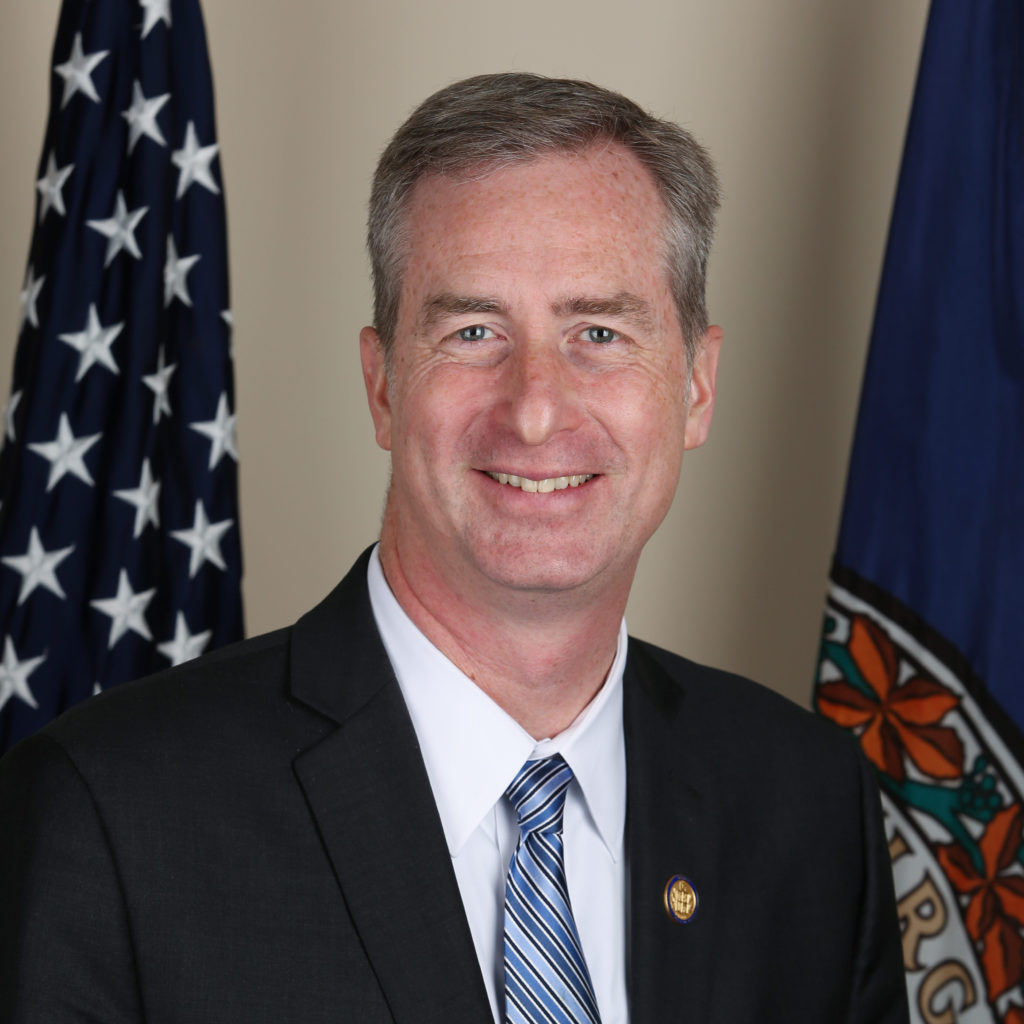Virginia campaign finance laws take first step beyond honor system
In a bitter 2009 Democratic primary, Roanoke Del. Onzlee Ware’s opponent accused him of dipping into his campaign funds for personal use. The complaint reached the state elections agency in Richmond, which fired off a letter demanding Ware provide receipts for the expenses in question.
That’s when all hell broke loose.
Candidates from both parties quietly reminded the state Department of Elections that it lacked investigative powers. The agency could only check to see if campaign finance disclosures were filled out completely and the math added up.
The Ware incident was a sobering reminder that Virginia’s campaign finance laws operated entirely on the honor system.
Under a new state law, however, some candidates have been put on notice that they may be called upon to provide bank records, invoices and other documents to verify their fundraising and spending.
The state Department of Elections will soon release a report on the first-ever outside audits of campaign finance disclosures. In this first round, seven candidates who ran for local office last fall were randomly selected for review.
* indicates winners. Source: Department of Elections list for candidates; spending for 2024 cycle from Virginia Public Access Project.
The scope will be ratcheted up later this year, when the agency will review every candidate for governor, lieutenant governor and attorney general. The audits will also include a random sample of 10% of General Assembly candidates and 1% of local candidates.
The review from last year’s local elections is still ongoing. Officials at the Department of Elections have declined to discuss what their Maryland-based contractor, GME Enterprises, has found so far. By law, the agency is required to issue a report by July 1.
David Bowers
Two of the seven local candidates selected said the review notices came as a complete surprise. Leesburg Mayor Kelly Burk and former Roanoke mayor David Bowers said they couldn’t recall receiving notification that the Department of Elections would audit reports after the election.
“Maybe they did and I missed it in the fog of a campaign!” said Bowers, who ran an unsuccessful bid for mayor last year.
Bowers said he complied with the records request and, if necessary, said he would “correct or supplement any unintended inadequacies or discrepancies to the fullest of my ability.”
Several candidates said they have received no communication or feedback since a Jan. 16 deadline to submit bank statements, invoices and other documents.
“I haven’t heard a word,” said Burk, who added that while gathering the documents, she came across several errors in her campaign finance reports. She noted these in her submission. “I have no idea what to expect,” she said.
When his name was drawn, Norfolk Mayor Kenny Alexander said he thought back to an incident during his 2009 re-election campaign for the House of Delegates. Alexander said his opponent reported a loan of $25,000, which Alexander suggested at the time might have been merely a paper transaction designed to make his opponent look more viable than he was.
“At the time, I asked publicly, ‘Is this money actually in a bank? Someone should ask this guy to show proof of deposit.’”
Alexander, who serves as his own treasurer, gathered the records for the state audit himself. “I think it’s fair,” he said of the new law. “I’m glad they’re doing it.”
Alexandria Mayor Alyia Gaskins and Chesapeake Mayor Roy West both said they delegated the task of responding to the records request to staff or a volunteer campaign treasurer.
“I don’t have much to say about the process,” Gaskins wrote in an email. “It was fairly straightforward.”
Virginians have long had easy access to candidates’ campaign finance disclosures, but until now, voters had to trust that candidates accurately reported where their funds came from and how they spent them.
 Del. David Bulova, D-Fairfax County. Courtesy of Amanda Maglione
Del. David Bulova, D-Fairfax County. Courtesy of Amanda Maglione
For decades, the state legislature rejected efforts to give the Department of Elections the authority to scrutinize candidates’ financial records. In 2022, the General Assembly finally approved a version patroned by Del. David Bulova, D-Fairfax County.
“There are some of us who want more comprehensive campaign finance reform like contribution limits,” Bulova said in an interview. “But if we are going to have a disclosure-only system, there ought to be some way for those reports to be validated.”
The effective date of the legislation was delayed two years to 2024. The result is that this first run took place in an even-numbered year with a general election ballot with no state races and relatively few local contests.
The first seven candidates subjected to review were required to submit financial records from their campaign, including the following:
- Monthly statements from banks and third-party credit card processing firms such as ActBlue and WinRed.
- Copies of checks, online donation receipts and other documentation for all contributions of more than $500.
- Invoices, credit card receipts and other documentation for expenditures greater than $500.
- Documents that confirm the total sum of receipts and expenses under $500, broken down by filing period.
It’s not entirely clear if the list above contains information detailed enough to reconstruct a full picture of the candidates’ donations and spending.
For instance, the law specifically shields transactions of $500 or less from detailed documentation. But guidelines provided by the agency said that statements from credit card processors are expected to include the name and address of every donor.
One goal is to screen for prohibited donations from foreign nationals who are not green card holders. Agency officials say they will achieve this goal by scrutinizing donors listed with an overseas address.
But campaign experts say an organized effort by a foreign national would be difficult to detect. Individuals could avoid scrutiny by transferring money to an American-based limited liability company (shielding their identities) or simply using the address of a second home legally owned in the United States.
“Unfortunately, it’s impossible to say how much foreign money is influencing our elections,” concludes Open Secrets, which tracks money in presidential and congressional races.
The candidates in Virginia’s first round of audits had, in theory, a minuscule chance of being selected. As the law is written, the agency must receive 1% — or 1 in 100 — of local candidates.
In practice, the odds are much higher for any candidate running in larger cities and counties, where elections tend to cost more. That’s because the law exempts candidates who raise less than $25,000.
Legislators said they set the threshold to avoid burdening candidates running in rural counties and small cities, where campaigns cost only a few hundred dollars. “I didn’t want them to get dinged,” said Del. Wren Williams, R-Patrick County, who represents a rural swath of Southwest Virginia that straddles the Blue Ridge.
Fewer than 120 local candidates who ran in the 2024 general election met the $25,000 threshold, according to a review of campaign finance data compiled by the Virginia Public Access Project.
When drawing names for the audits, Department of Elections officials said they used a pool of 658 candidates, which included those who raised too little money for a review and some past candidates who were not even on the 2024 ballot. (The agency divided 658 candidates by 100, which came to 6.58. They rounded up to seven candidates.)
Because the pool included so many exempt candidates, the random drawing during a public meeting on November 18 took more than 20 minutes and lasted 44 rounds. Officials wanted to make sure there were at least seven candidates who raised more than $25,000.
Later, election officials checked campaign finance records to determine which seven candidates won the drawing.
“We don’t want to call them winners,” Tammy Alexander of the campaign finance section told the Board of Elections. “We’ll call them selectees.”
The 19th name drawn was Stanley Milan, the mayor of the Town of Lovettsville. Officials later determined that Milan reported raising $24,809 — just $191 short of the threshold. Like many others, Milan was excluded, though officials wrote “teetering” next to his name.
Bowers said he was told he was the last candidate drawn. He was the 34th name drawn and the seventh who raised enough last year to qualify for an audit.
Once the process is completed, the public’s understanding of the audits will be limited to the contents of the agency’s annual report. Department of Elections officials contend that all financial records submitted by candidates during a review are not covered by the state’s Virginia Freedom of Information Act.
If any candidate is found to have submitted incomplete or inaccurate disclosures or fails to provide required documentation, agency officials said they will make public copies of “Non-Compliance Reports.”
“Most want to do the right thing with campaign reports, so we should be fine,” state campaign finance official Tammy Alexander told the Board of Elections on Nov. 18.
As of early June, no such reports have been issued.
If candidates ignore requests for more documentation, the agency can forward the case to the appropriate commonwealth’s attorney. Failure to comply is a Class 1 misdemeanor, which can result in a jail term of up to one year and a fine of up to $2,500.
Bulova, the chief sponsor of the legislation, said he will be curious to read the agency’s forthcoming report. Asked if he had given any thought to any legislation to improve the process, Bulova said, “I’m focused on giving this [first step] a chance to gel and seeing if it works.”












